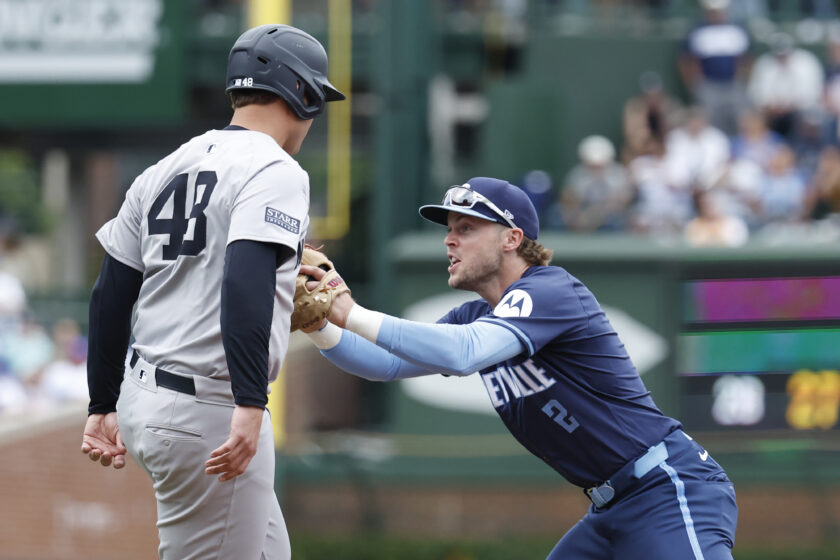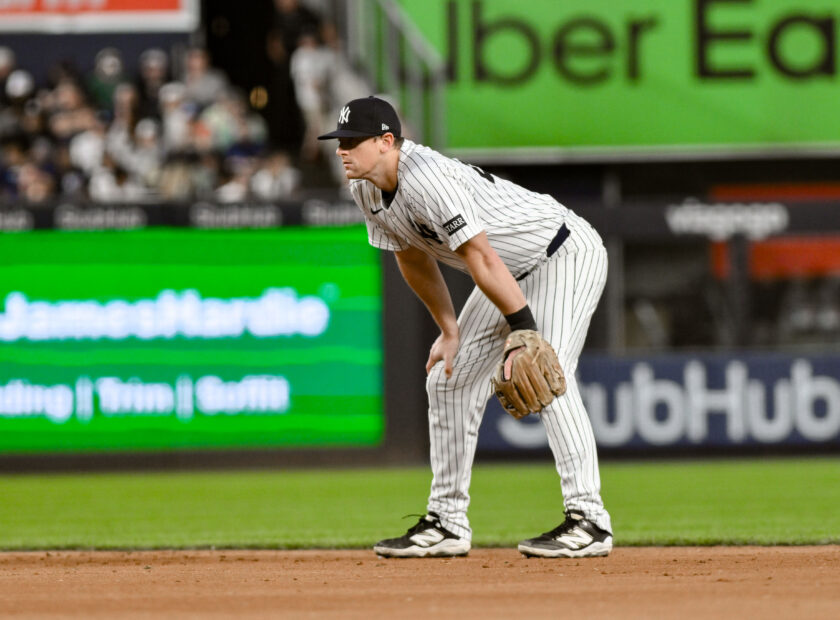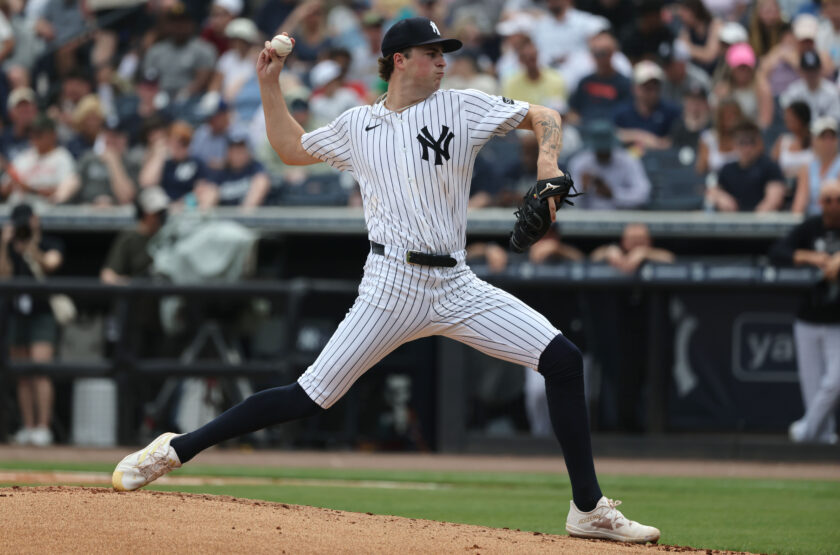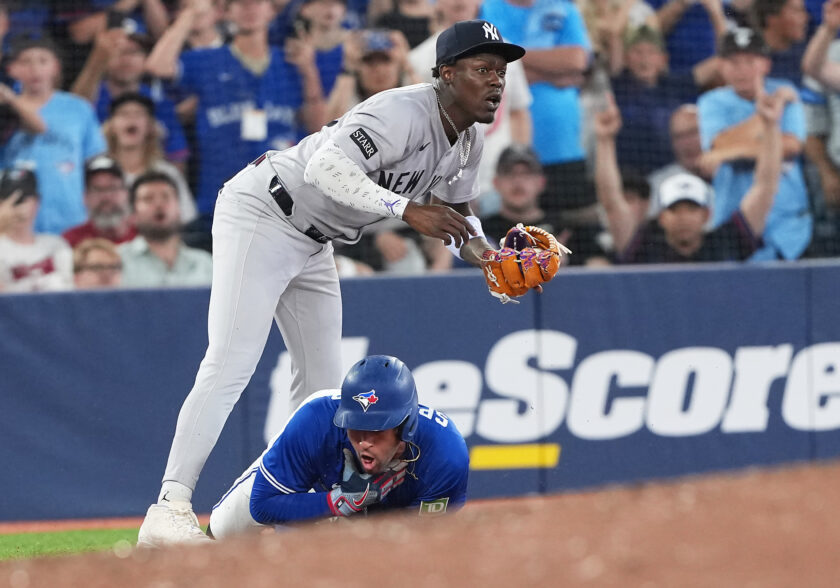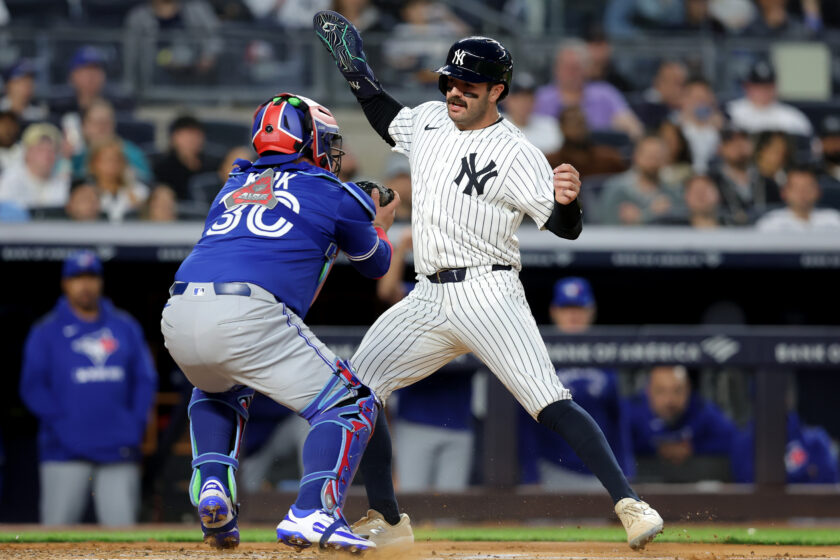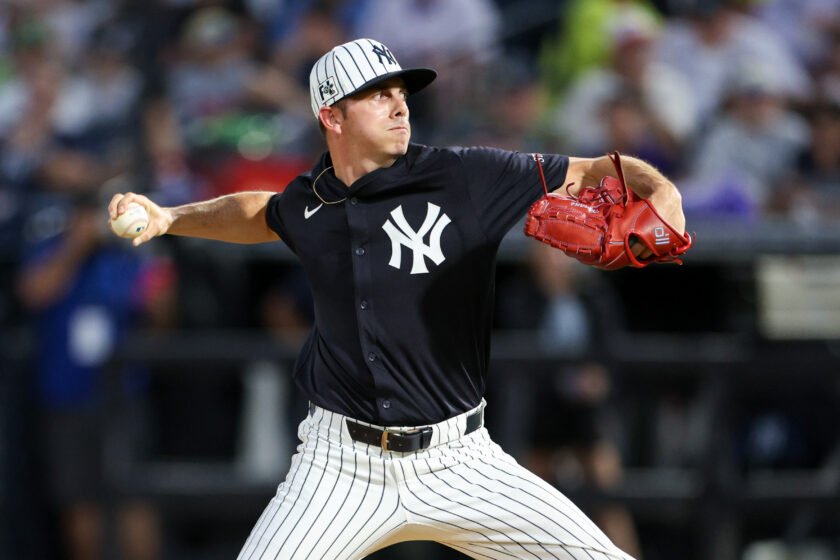New York Yankees: Was Trading Brian McCann a Mistake?
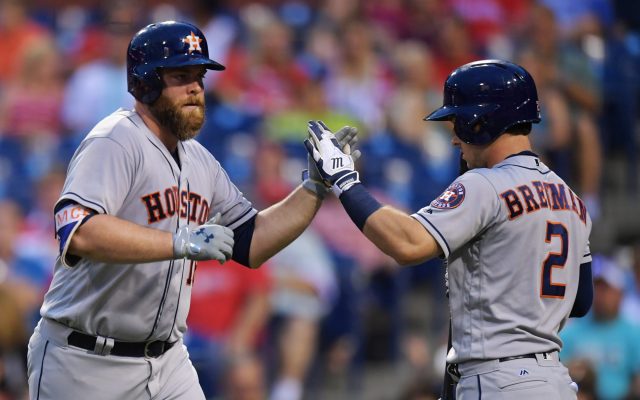
Dissension over Gary Sanchez’s defensive performance has made the rounds through the media and Joe Girardi of late. Could this have been avoided with Brian McCann still a Yankee?
Nobody denies Gary Sanchez’s ascension to stardom that put the Yankees on the back page despite little chance of making the postseason in 2016.
ESPN’s Andrew Marchand pronounced him “the face of the Yankees.”
[sc name=”Yankees Link Related” link=”https://elitesportsny.com/2017/08/09/4-waiver-options-the-new-york-yankees-could-pursue/” text=”4 Waiver Options The New York Yankees Could Pursue” ]Given his Ruthian feats, the Yankees decided to forgo the last three years of Brian McCann’s contract, trading him to the Houston Astros for two prospects, Albert Abreu and Jorge Guzman.

In the end, the Yankees saved themselves $49 million over the next three seasons and deepened their farm system, garnering two arms that have catapulted to the ninth (Abreu) and eleventh (Guzman) ranked prospects for the Yankees, according to MLB Pipeline.
In Guzman, the Yankees have a stud who is brand new to the English language, but fluent enough to note that he once “broke the radar gun” with a fastball that clocked in at 105 MPH.
While with the Low-A Staten Island Yankees, Guzman has thrown 17 2/3 innings, allowing seven hits and four walks, yielding three earned runs. In that span, Guzman mustered 21 strikeouts, 10 in his most recent start, in which he lasted 6 2/3 innings, with Yankees minor league pitching coordinator Danny Borrell looking on.
Said Borrell, “He didn’t throw a fastball below 98 until the seventh inning,” illustrating the type of longevity the big club needs down the road in the rotation. Borrell also praised Guzman’s combination slider/curve that can top out at 88 MPH and his command with a developing changeup.
[sc name=”Yankees Center” ]Contrarily, Albert Abreu, a bit more of a polished product hailing from the Dominican Republic, was promoted this season from Single-A Charleston, where he struck out 22 batters over 14 2/3 innings, to High-A Tampa this past April. Borrell, who sees in Abreu “the total package,” given his fastball that can—just barely—eclipse 100 and a “plus” curveball. Although he has been sidelined since June with pain in his throwing shoulder, he is a prospect worth the Yankees’ patience.
According to Borrell, “We’re just trying to get him strong. We don’t think there’s anything serious in there [regarding his injury]. We just want to make sure he’s 100 percent before we get him going again. … We don’t feel as if it’s a big issue.”
Guzman and Abreu, both at 21 years of age, are relative greenhorns, with Guzman, an international prospect who was once a relative unknown, amassing over 90 innings of work in the Astros’ system before the McCann trade. Along with Chance Adams, Justus Sheffield and Dillon Tate, who are developing nicely with Triple-A Scranton/Wilkes-Barre, Double-A Trenton and Single-A Tampa respectively (Tate most recently earned a promotion to Trenton), the Yankee future seems radiant in the rotation.

Prior to the onset of the season, the Yankees were enamored with what they had in Gary Sanchez. Sanchez, in those 53 games, hit .299 with 20 homers and 43 RBI, posting an incredible 1.032 OPS. The performance echoed shades of Willie McCovey, who won the NL Rookie of the Year in 1959 having only played 52 games, when he hit .354 with 13 home runs and 38 RBI, managing a stellar OPS mark of 1.085.
Although Sanchez ultimately unseated McCann as the starting catcher down the stretch last year, the seven-time All-Star and six-time Silver Slugger (once with the Yankees) still managed a .242 average with 20 home runs and 58 RBI, handling the deference to Sanchez with aplomb and grace.
Alas, the Yankees demonstrated an uncanny affinity for Sanchez’s performance, fawning over the perils of the “small sample.”
Although Sanchez is having a pretty good season, especially by a youngster’s standards—voted to the All-Star team in 2017, he has hit .263 with 17 homers and 52 RBI, posting a solid .826 OPS—his defense has inspired ire amongst the Yankee brass, with manager Joe Girardi proving most vehement in his criticism of the 24 year old backstop. Despite throwing out 35% of the base runners who have tested his arm, Sanchez has 10 errors and 12 passed balls, second and first in the AL respectively, resulting in a benching in the last two games of the Indians series this past weekend.

Unfortunately, the Yankees no longer have Brian McCann to rely on in a pinch; instead, they have Austin Romine, an automatic out who has struck out 47 times in 59 games this season, grounding into six double plays while posting a negative WAR (-0.3), abysmal OPS+ (53), and a paltry batting average (.221).
Meanwhile, in Houston, McCann serves as a worthy mentor to Evan Gattis, whom the Astros have tried at the catcher’s position this season and last. Hitting .238 with 13 homers and 48 RBI, right in line with his seasonal average and output with the Yankees, McCann has mentored Gattis, whose best splits this season (between DH and catching) occur behind the plate, where he is hitting .301 with 10 homers, 30 RBI, and a .922 OPS in 39 games (as opposed to his .229 average and .622 OPS in 22 games as the Astros’ DH).
Although not without growing pains defensively of his own (his Total Zone Total Fielding Runs Above Average marks are well into the negative, and he has posted 7 errors while only catching 12% of runners stealing against him, well below league average), Gattis, manning a position that is foreign to him (230 of his 562 career games were as a backstop, the bulk of which occurred these past two seasons), can rely on the veteran presence of McCann, whose clubhouse acumen has assisted in making the Astros the top team in the American League. This was the same veteran presence that resulted in five prior postseason appearances, four with the Atlanta Braves and one with the Yankees.
Brian McCann hit his 245th HR as a catcher (as opposed to DH/1B) last night. One more and he’ll tie Posada for 8th most as a C since 1913 pic.twitter.com/1k98LaM2Qw
— Baseball Reference (@baseball_ref) July 25, 2017
In hindsight, trading away McCann a season too early has proven a mistake. In the past, when Jorge Posada withered, a capable backup in Joe Girardi could take his place. When Sanchez falters, the Yankees begrudgingly resort to Austin Romine, a name who does not inspire trust nor production. If only Girardi had McCann to turn to now…
All things considered, trading away McCann was more than a vote of confidence for Gary Sanchez as the heir apparent to the catcher’s position. With McCann’s $16.33 million annual salary average off the books these next three years, along with the recent departures of Mark Teixeira in 2016, and A-Rod and CC Sabathia’s contracts terminating at season’s end (despite Alex Rodriguez’s “retirement” last year, the Yankees are paying him over $20 million in 2017 to serve as a “special adviser to the club”), the Yankees, even in spite of the gaudy Jacoby Ellsbury and Aroldis Chapman contracts, will see their payroll plunge to around $117 million in 2018 before arbitration and qualifying offers, a number that plummets even further in 2019 (around $69 million, with Brett Gardner, Chase Headley, and David Robertson’s contracts up, should the Yankees not make any free agent signings beyond one year in 2018).
Clearly, the McCann trade was one that was placed with the future in mind.
Should they feel so inclined, the Yankees could offer mega contracts to Manny Machado and Bryce Harper after the 2018 season, both of whom will be 26 years old to start the 2019 season, but given the rise of Miguel Andujar and the rising stocks of Aaron Judge, Clint Frazier, and Estevan Florial, whom Brian Cashman refused to include in any deadline deal, they may not have to.

Ultimately, the McCann trade provides as much payroll flexibility as it serves to bolster the Yankee farm system.
But given the current state of affairs with Gary Sanchez, the deal cannot help the club in the present, which could very well cost the Bombers a division title and another early exit in the playoffs should Sanchez fail to address his defensive ailments. For as much as Cashman deserves praise for all that he has done to place the Yankees into a position of World Series contention with the best yet to come in the future (even after trades to ship Dustin Fowler, Blake Rutherford, James Kaprielian, and Jorge Mateo out of town, the Yankees still tout the fourth-best farm system, according to MLB Pipeline’s midseason report), the jury is still out on what the McCann deal will mean for the ball club in the future.
[sc name=”Yankees Links” ]Gary Sanchez addresses not being in the lineup and his catching struggles: pic.twitter.com/XiSfJetW3H
— YES Network (@YESNetwork) August 6, 2017
What we do know, however, is that the McCann trade has tarnished the complexion of a club in need of a veteran backup right now to mentor Sanchez. Sorry, Austin Romine: you simply do not cut it.
[sc name=”Yankees Link Next” link=”https://elitesportsny.com/2017/08/09/gary-sanchez-jorge-posada-lesson-new-york-yankees-patience/” text=”Gary Sanchez and Jorge Posada: A Lesson In New York Yankees Patience” ]I am an English teacher, music and film aficionado, husband, father of two delightful boys, writer, sports fanatic, former Long Islander, and follower of Christ.
Based on my Long Island upbringing, I was groomed as a Yankees, Giants, Rangers, and Knicks fan, and picked up Duke basketball, Notre Dame football, and Tottenham Hotspur football fandom along the way.

